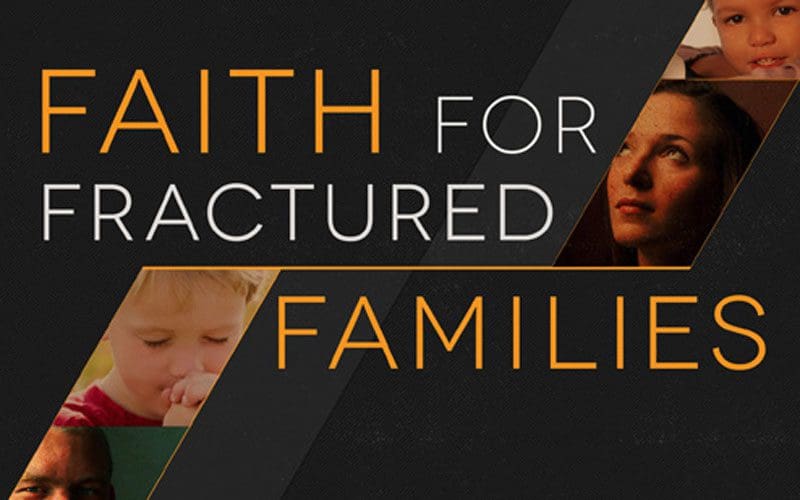
The Hike
Promise
Genesis 12:1–9

From the beginning, the Bible is a story of hope. When sin entered the world, God promised that it would not stand. God would send a deliverer, an offspring of the woman who would crush the head of the serpent. The story of how God will fulfill His promise begins in Genesis 12.
One day God appeared to him, just as He had appeared to Adam and Eve in the garden (Acts 7:2). God said, “I will bless you and make your name great, so that you will be a blessing. In you all the families of the earth shall be blessed” (Genesis 12:2–3). So the promise to Abraham is a promise for us. This is why, from Genesis 12 on, the Bible story follows the line and family of Abraham.
God’s Promise Is a Gift of Grace
There are two specifics in God’s promise of blessing to Abraham. First, a blessed people:
“I will make of you a great nation” (12:2). Second, a blessed place: “The LORD said to Abram, ‘Go from your country and your kindred and your father’s house to the land that I will show you’” (12:1). Abraham went to this place, and when he arrived there, God said, “To your offspring I will give this land” (12:7).
That’s the Bible story in a nutshell. It’s all about how God steps into this fallen world, to gather a blessed people and to bring them to a blessed place. That’s why at the end of the story we see the joy of a great company of people from every tribe and nation gathered in the presence of God (Revelation 7:9).
But there were two problems. First, God promised to make Abraham into a great nation, but Abraham had no children. He was seventy-five years old, and Sarah was just ten years behind him, so both of them were eligible for social security and well past the hope of having children. The second problem was that when Abraham arrived in the Promised Land, he found that it was already occupied: “The Canaanites were in the land” (Genesis 12:6). Only God could bring the promise about. The promised blessing comes from God and it depends on God. It is a gift of grace.
God’s Promise Is Received by Faith
Years passed without any sign of a baby arriving or of the Canaanites leaving. But Abraham “believed the LORD, and he counted it to him as righteousness” (15:6). This is one of the most important verses in the Old Testament because it tells us how we can come into a right relationship with God.
The Bible does not say that God counted Abraham righteous because he obeyed or because he prayed. Abraham was counted righteous because he believed. So what did Abraham believe that led to God counting him as righteous?
The Bible is one story given to us by God, and what is hard to understand in one place is often explained in another. We interpret Scripture in the light of Scripture.
Roll the Bible story forward to the time of Jesus, and you find our Lord in a conversation about Abraham: “Your father Abraham rejoiced that he would see my day. He saw it and was glad” (John 8:56).
Two thousand years before Jesus was born, Abraham was given a glimpse of Jesus Christ. He understood that God would give him a descendant through whom God’s promise to bless the world would be fulfilled. This descendant is Jesus, the Son of God, who came into the world through Mary, the offspring of Abraham.
The first book of the Bible tells us how we can be right with God, and it tells us that it is by faith. Abraham was saved in the same we are, by believing in the Lord Jesus Christ. He saw the day of Christ from a distance, and he believed.
Though he did not know the name of Jesus or the details of the cross, Abraham looked forward to what Christ would accomplish, just as we look back in faith. It is by believing in the Lord Jesus Christ that we are made right with God.
The key question is not simply “Do you have faith?” but “Do you believe in the Lord Jesus Christ?” Do you believe as Abraham did?
How does faith in Jesus make us right with God? Suppose you have a bank account that is in deficit, and a friend decides to help you. He asks you how much you owe. “It’s $10,000,” you say.
Your friend agrees to help you, and when his money is deposited into your account, your debt is paid. Your gain is his loss. What is counted to you is counted against him. That’s the language here. Abraham “believed the Lord, and he counted it to him as righteousness” (Genesis 15:6).
If Christ is to credit righteousness to us, He must assume a massive debt, and He did this at the cross. All our debt was loaded onto Jesus, and when you believe in Him, the Father will credit His righteousness to you.
God’s Promise Comes at Unimaginable Cost
“After these things God tested Abraham and said to him, ‘Abraham!’ And he said, ‘Here I am.’ He said, ‘Take your son, your only son Isaac, whom you love, and go to the land of Moriah, and offer him there as a burnt offering on one of the mountains of which I shall tell you’” (Genesis 22:1–2). You read these verses and you wonder, “What in the world is this all about? Why would God ask Abraham to do this?”
God had promised that His blessing would come to the world through Abraham’s offspring, but there was no offspring. Then in a miracle of grace, God gave the offspring. And now God says that the blessed offspring must be given up!
It was through Isaac and his line of descendants, that the Messiah would come into the world. So Isaac had to live; he had to marry and have children. How can the promise possibly be fulfilled if Isaac is sacrificed?
Abraham did not question the need for a sacrifice. This is striking because when God told Abraham about the judgment on Sodom, Abraham stood before the Lord and pleaded for the city to be spared (18:22–23). But when God says that there must be a sacrifice, Abraham raises no objection.
Abraham seems to understand that if God’s blessing is to flow to the world, a sacrifice must be made. Maybe his conscience told him that. God had said, “walk before me, and be blameless” (17:1). Abraham was far from blameless. At one point he had lied about his wife, and at another he had laughed at God’s promise. At best, Abraham had obeyed God in part. He could not hold up his head and say, “I have done all that God told me to do.” He was not blameless, and neither are we.
So how could God’s promise of blessing to the world be fulfilled if Abraham had not fulfilled its conditions? There had to be a sacrifice, and Abraham knew it.
God Provides the Sacrifice
As Abraham climbs the mountain with his son, there is this poignant moment: “Isaac said to his father Abraham, ‘My father!’ And he said, ‘Here I am, my son.’ He said, ‘Behold, the fire and the wood, but where is the lamb for a burnt offering?’ Abraham said, ‘God will provide for himself the lamb for a burnt offering, my son’” (Genesis 22:7–8).
When they arrive at the top of the mountain, it appears that Isaac will be the sacrifice. He was bound and laid on the altar. Isaac would have been a young man at the time, so forget any artistic impression you may have seen of a young child lying helpless on the altar. Isaac carried the wood on his shoulders (22:7). He was in the prime of life and could easily have overpowered Abraham, who was over a hundred years old, if he had wanted to.
But Isaac didn’t do that. He was willing to lay down his life. So what you have here is a father who is willing to give up his son, and a son who is willing to give himself. And they are of one mind in what they are doing in order to bring blessing to the world.
Then at the critical moment, the angel of the Lord calls out from heaven: “Do not lay your hand on the boy or do anything to him” (22:12).
Then God provides the sacrifice: “Abraham lifted up his eyes and looked, and behold, behind him was a ram, caught in a thicket by his horns. And Abraham went and took the ram and offered it up as a burnt offering instead of his son” (22:13).
I hope that you will respond to this story in two ways. First, I hope you will recoil in horror. You are meant to read this story and say, “What kind of unimaginable cost is this?!” Second, I hope you will gaze with wonder at the reality to which this story points. God never intended that Abraham should sacrifice Isaac. But this harrowing story of a father ready to give up his son and of a son ready to lay his life down is here to show us what it cost for the promise of God to be fulfilled and for His blessing to come to the world.
God did what Abraham and Isaac could only illustrate. God the Father gave up His Son. God the Son gave Himself freely for us. As Isaac carried the wood on his back, Jesus carried the cross on His shoulders. He became the sacrifice. He took our place in the fire of the judgment of God.
God the Father and God the Son were one in self-giving for you and for me. Which is harder, to lay down your own life or to give up the one you love? God experienced both agonies at the same time. The Father did not spare his own Son but freely gave Him up for us all (Romans 8:32). The Son of God “loved me and gave himself for me” (Galatians 2:20). God’s promised blessing came at an unimaginable cost that God Himself bore for us.
Opened
God’s promise to bless the world through Abraham’s descendant is fulfilled in Jesus Christ. God the Father was pleased to send His Son into the world, where He carried our sins on the cross and laid down His life as a sacrifice, so that His righteousness might be credited to all who come to Him in faith.
Genesis 12:1–9
The Call of Abram
1 Now the LORD said to Abram, “Go from your country and your kindred and your father’s house to the land that I will show you. 2 And I will make of you a great nation, and I will bless you and make your name great, so that you will be a blessing. 3 I will bless those who bless you, and him who dishonors you I will curse, and in you all the families of the earth shall be blessed.”
4 So Abram went, as the LORD had told him, and Lot went with him. Abram was seventy-five years old when he departed from Haran. 5 And Abram took Sarai his wife, and Lot his brother’s son, and all their possessions that they had gathered, and the people that they had acquired in Haran, and they set out to go to the land of Canaan. When they came to the land of Canaan, 6 Abram passed through the land to the place at Shechem, to the oak of Moreh. At that time the Canaanites were in the land. 7 Then the LORD appeared to Abram and said, “To your offspring I will give this land.” So he built there an altar to the LORD, who had appeared to him. 8 From there he moved to the hill country on the east of Bethel and pitched his tent, with Bethel on the west and Ai on the east. And there he built an altar to the LORD and called upon the name of the LORD. 9 And Abram journeyed on, still going toward the Negeb.
(ESV)
Use these questions to further engage with God's Word. Discuss them with another person or use them as personal reflection questions.
Take the First Step to Open Your Bible
Join 35,000+ people who get ‘Open Today’. Every Wednesday you’ll get resources designed to inspire, encourage, and challenge you in opening your Bible.

